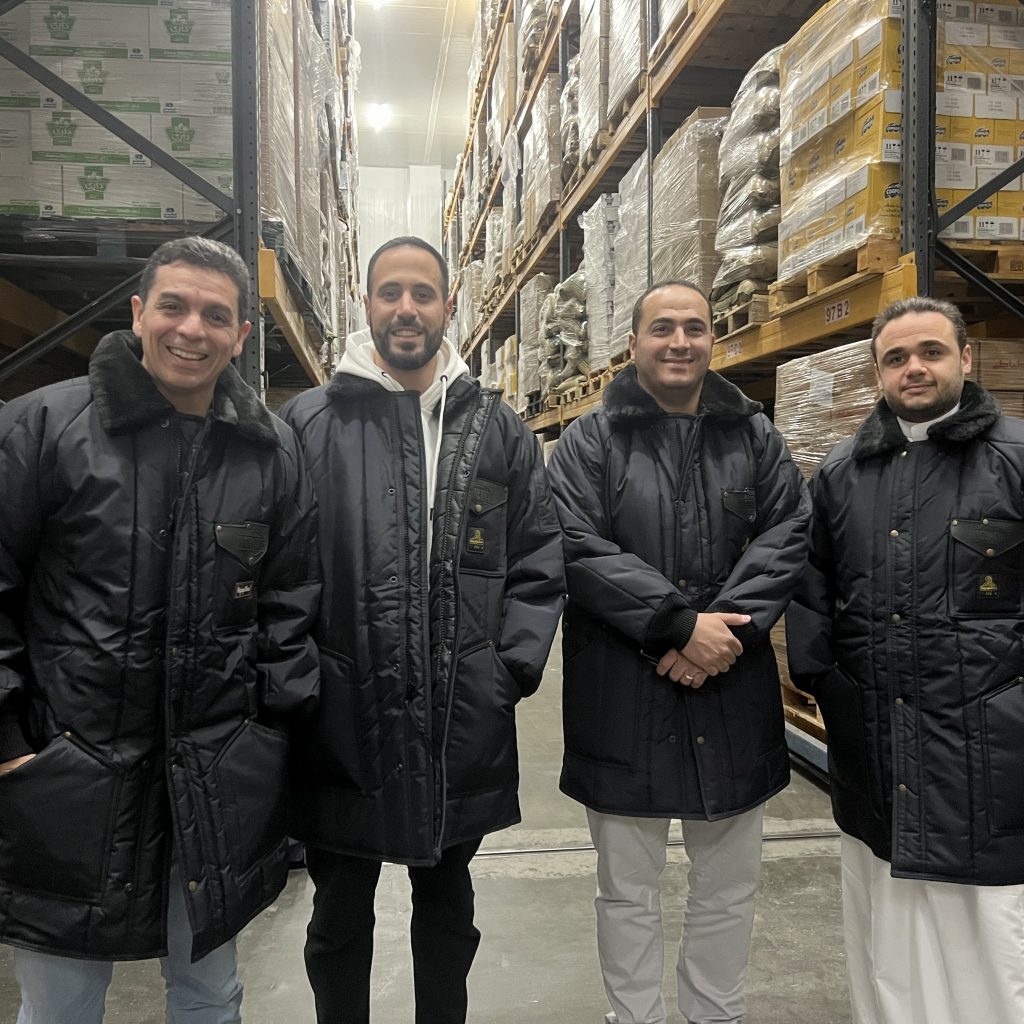The Kingdom of Saudi Arabia is capitalising on every industry it can while preparing to implement the Saudi Vision 2030. The oil and gas sectors are seeing several giga projects emerge, but the F&B sector has much more unrealized potential. The local food supply technology market is new and expanding swiftly. Business owners are now looking for the same ease in their internal operations that they have enjoyed at home since COVID drove the adoption of consumer apps. As economies begin to expand, the number of tiny cafés, restaurants, and mom-and-pop supermarkets tends to rise quickly.
“We see this part of the sector, the long tail, growing in double digits at the moment, however, the current food network is built to support big businesses,” said Salman Attieh, Chairman of NOMU.
“The suppliers that are currently in place are, as far as we can tell, both unable and unwilling to meet the demands of this growing market. In addition to not being financially desirable, they simply lack the necessary skills. To supply the tiny masses, a brand-new, effective, efficient, and dependable food network is necessary.”
The food sector is becoming more digital upstream. Delivery to consumers is efficient, POS systems are sophisticated, and there are many payment options. The next frontier is availability of food supply.
Riyadh-based, NOMU is a holding group created after merging two companies, Jumlaty and Appetito. KSA-based Jumlaty is an end-to-end supply chain as a service solution for small and medium restaurants, a one-stop shop aggregator of all major food suppliers.
Appetito, founded by Shehab in 2020 with the goal of bypassing the middle mile network and providing families with trustworthy, inexpensive, and high-quality food. Little mom-and-pop grocery stores control 90% of the country’s grocery market, with several intermediaries between them and the main supplier. “This results in significant inefficiencies, which are paid for by the final user. Families may benefit from a far more individualised shopping experience and greater value products when a direct provider ships directly to them,” adds Salman. After an acquisition, Appetito extended its business into Tunisia and Morocco and launched a new sector that caters to small F&B establishments.
At the same time, Salman launched Jumlaty in 2020 with the goal of providing small restaurants with dependable, economical, and high-quality goods by constructing a contemporary food network specifically for these kinds of businesses. a supply chain as a service option that provides peace of mind to F&B businesses. providing a full range of services, including forecasting, storage, and scheduled delivery. During the lockdown, Jumlaty also developed a retail service that focuses on helping families and has had remarkable growth.
Salman shares, “We were introduced through mutual investors and discovered that we are both attempting to tackle the same issue. More significantly, though, we discovered that we have similar beliefs. Building a sustainable business is the first of these, as it is a quick route to positive unit economics. The second is utilising new technologies to better serve our clients – decision to join our ventures was made with ease because of shared values.”
Further, a significant obstacle for the MENA region’s food supply technology business is the rise in food prices. Salman continues, “Since we aim to offer an egalitarian experience for all of our clients, this is a major worry for us right now. Insufficient storage room for small and medium-sized restaurants, a lack of trustworthy last-mile solutions for food providers, and supplier preference for larger locations over smaller enterprises are further difficulties.” These elements may make it difficult to manage inventories and rely on suppliers, leading to problems putting out fires and worse profitability for smaller eateries. The sector may also encounter difficulties implementing new technologies like AI scheduling and robots as well as successfully training people from various ethnicities.
As an expert in the food supply technology sector in the MENA region, Salman believes that the NOMU has the potential to shape the industry in several ways. “Firstly, NOMU seeks to provide a comprehensive supply chain solution to address the issues that small and medium-sized restaurants in the area face, such as unreliable suppliers and a lack of storage space,” says Salman. He feels that if the food supply chains for small and medium-sized restaurants become more dependable and effective as a result, they may be able to compete more successfully with larger establishments.

“Moreover, NOMU is using cutting-edge technologies, such as AI scheduling and robots, to improve the precision and efficiency of its food delivery operations.” This might act as an example for other food supply companies in the region, encouraging further innovation and competitiveness on the market.
Furthermore, NOMU’s emphasis on providing excellent customer service may contribute to raising standards and expectations in the MENA region’s food supply tech sector. including new capabilities like AI Dynamic pricing, AI Chat ordering, and Group Purchasing. Businesses may be inspired to improve their operations and provide better customer service as a consequence. “By tackling important challenges, integrating cutting-edge technology, and improving customer service, NOMU has the ability to completely transform the MENA region’s food supply technology sector,” states Salman.
And finally, the food business is becoming more digital upstream. There are various payment choices, sophisticated POS systems, and effective client delivery. The availability of food is the next frontier. The local food and beverage (F&B) market is evolving as a result of automation, as are the associated logistical operations. Several F&B firms are utilising automation to optimise their operations and cut expenses as a result of the rising cost of labour and the increased demand for meal delivery.
The use of technology for food and beverage production, distribution, and procurement is referred to as automation in the food and beverage supply chain. “This involves automating inventory management, streamlining production procedures, and enhancing supply chains utilising sensors and data analytics. Salman concludes, “This will enhance the operational responsiveness, agility, and effectiveness of F&B enterprises, lowering costs, enhancing customer service, and boosting profitability. In the next five years, 10 million households and 1 million businesses will be served by NOMU, which now targets young, working families and small restaurateurs.





